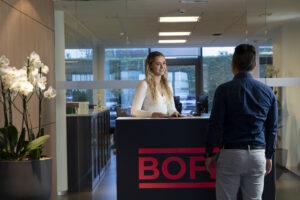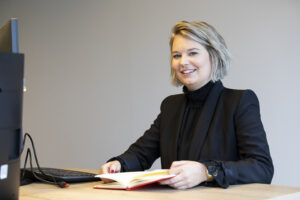In our earlier flash, we briefly discussed the new tax regime for expats. The legislative proposal was approved and published on December 31, 2021. This means that the new regime is applicable as of 1 January 2022. Time for a more extensive update.
Conditions
The new expat regime can be divided into two systems: the “Special Tax Regime for Incoming Taxpayers” and the “Special Tax Regime for Incoming Researchers”. Within these two regimes, expatriates receive an identical tax benefit, but there are differences in terms of personal scope and entry conditions.
Special Tax Regime for Incoming Taxpayers
Both employees and company directors can benefit from this regime if they receive a sufficiently high remuneration. This minimum remuneration is fixed on 75.000 EUR per calendar year. Reference is made to the gross remuneration, so: before the deduction of social security contributions, and including holiday pay, year-end bonus, benefits in kinds, bonuses and other taxable gratuities. The exempted remunerations (article 38 WIB92), such as the meal vouchers and eco vouchers, and the costs proper to the employer are excluded from this gross remuneration.
For the first year of employment and for the year of departure from Belgium, this minimum remuneration will be prorated based on the period of employment in Belgium. The salary must also be prorated when there is an interruption of the employment in Belgium and the salary is not paid out or in case of salary splits (when the individual only performs part of the professional activities in Belgium). The King will index this amount every 3 years and for the first time in income year 2024. It is important to note that this threshold must be respected during the entire period of employment in Belgium. If not, the taxpayer loses the regime for that year and for the following years.
Since there is a minimum salary requirement, there is no diploma requirement or a requirement of professional experience for the incoming taxpayers.
Both company directors of the first and second category of article 32 WIB92 can benefit from this system. It is important that it must be demonstrated that they are involved in the daily management of the company. Merely being part of the supervisory board is not sufficient. Executives who are (co-)founders of the company and executives who represent 30% or more of the capital of the company are also excluded from the new expat regime. This is because, according to the Explanatory Memorandum, it is rather logical that these persons are active in the company and therefore do not need a special regime to facilitate their appointment.
The employee/company director concerned must either be recruited directly abroad or assigned by a foreign company, part of a multinational group. This direct recruitment must be done through a Belgian establishment of a foreign company, a non-profit organization or a domestic company. With regard to direct recruitment by a domestic company, a few other changes have been made in the final version of the draft law. The preliminary draft of this law stated that, in this case, it must concern a subsidiary of a foreign company or a subsidiary that is part of a multinational group. However, this subsidiary condition was not added to the final draft law. Consequently, it is sufficient that the direct recruitment is done by a domestic company, without any additional conditions being attached.
Special Tax Regime for Incoming Researchers
Some conditions are different in the regime for researchers. Only employees can benefit from this system and they must either hold a master’s degree in a specific field of study (exact or applied sciences, civil engineering, medical sciences, veterinary medicine, pharmaceutical sciences, architectural sciences or agricultural sciences) or have at least 10 years of relevant professional experience. However, there is no minimum salary requirement here.
A researcher is defined as “any employee who, alone or in a group, carries out exclusively or principally research activities of a scientific, fundamental, industrial or technical nature, within a laboratory or an enterprise conducting one or more research and development programs”. An exclusive or principal activity means a time commitment of at least 80% of the working hours.
Again, there must be a direct recruitment abroad or an assignment within a multinational group, as already explained under the regime of incoming taxpayers.
For both regimes, the employees/company directors must not have been Belgian residents, must not have lived within 150 km of the Belgian border and must not have been taxed on a professional income within the Belgian non-resident taxation during the 60 months prior to the start of the employment in Belgium.
The 30% rule
The big advantage of the expat regime is the fact that many expenses related to the employment in Belgium are considered as expenses proper to the employer and can therefore be reimbursed tax-free.
In fact, a special arrangement applies to “recurring expenses arising directly from the assignment or employment in Belgium”. This includes:
- The additional cost of housing in Belgium versus the country of origin
- Additional cost of living in Belgium compared to the country of origin
- The cost of private travel to the country of origin (for taxpayer, partner and children), including travel on the occasion of a birth, marriage or death of a family member.
If the employer or the company takes such expenses at charge in addition to the salary, either directly or in the form of specific reimbursements, this is considered a reimbursement of expenses proper to the employer up to 30% of the gross salary, with a maximum of 90.000 EUR per year. These costs are then considered as costs proper to the employer, without the need for supporting documents. This 30% is an upper limit, the employer can therefore also take costs on board for a lower amount. The excess will be considered as remuneration and will also be taxed as such if the maximum limit is not respected. This means that the new tax regime will be less attractive for expatriates with an annual salary higher than 300.000 EUR.
The 30% rule needs to be prorated for the year of arrival in Belgium, for the year of departure from Belgium and for the year in which the 5- or 8-year application period of the regime ends. This proration is based on the number of days that the employment in Belgium existed in that year and if the conditions for application of the regime were met.
If the employee/company director has to interrupt his professional activities temporarily and during this period there is no salary to be paid (for example due to maternity leave, incapacity for work, etc.), but the recurring expenses must continue to be borne by the employer or the company due to a contractual obligation, the gross remuneration does not need to be prorated. In other words, the salary that would normally have been granted for these periods may be taken into account to determine the 30% limit. Moreover, in this situation, the maximum of 90.000 EUR should not be prorated.
It is important that if the employer or the company is going to bear the costs resulting from the employment in Belgium, this must be written down contractually. Only in this case, the 30%-rule can be applied!
Other expenses proper to the employer
In addition to the 30% rule, three other types of expenses are accepted as reimbursement of expenses proper to the employer:
- Costs of moving to Belgium
- Costs incurred for the furnishing of the residence in Belgium
- School costs (for children from school age, in a private or international school)
However, no lump sum is provided here, so the employee or company director must be able to provide supporting documents for these costs.
Firstly, the costs of moving to Belgium are targeted here. These costs include the cost of one trip to find a new place of residence in Belgium, the travel expenses of the taxpayer himself, his partner and their children. It also includes the costs of dismantling, packing, loading, transporting, unloading, unpacking and assembling the furniture.
In addition, the costs related to the furnishing of the house in Belgium done in the first 6 months after arrival in Belgium are targeted. This concerns only the costs incurred for the purchase of equipment intended to remain in the home in Belgium or for the purchase of household appliances in accordance with the standards in force in Belgium (for example, household appliances with an adapted plug). These costs are limited to 1,500 EUR.
Furthermore, it also covers school expenses (limited to the mandatory elements). Other costs, e.g. moving pets, storing furniture, etc, are explicitly excluded.
Duration of the special tax regime
The employee/company director may benefit from the new expat regime during a period of 5 years. This period can be extended by 3 years after submitting a new application and if the conditions are still met. The extension must be made within 6 months following the end of the first 5 years of employment in Belgium.
When the period of 5 years, or in some cases 8 years, has expired, the employee/company director cannot continue to benefit from the new special tax regime.
Change of employer
The employee/company director can continue to benefit from the special tax regime for the duration of 5 or 8 years, even if there is a change of employer/company. It is important that a new application is then submitted by the new employer/company and the conditions for access must still be met. The gross remuneration will be applied pro rata for the year of change: a pro rata of the employment with each employer. This proportional application also applies to the maximum amount of 90.000 EUR.
What disappears with the introduction of the new regime?
The taxpayer will no longer be able to rely on the ‘travel exclusion percentage’ and the non-taxable allowances, as this has been replaced by the 30%-rule. This change makes the system more transparent and easier to manage for international companies.
The taxpayer will also no longer automatically be considered a non-resident for tax purposes. With the introduction of the new regime, the normal residence rules of the WIB92 apply. An expatriate living in Belgium with his or her family will consequently be taxable in Belgium on his/her worldwide income. An expat can only be considered a non-resident if he/she has a tax certificate of residence in the home or third country, and this must be submitted to the tax authorities every year. In this way, the aim is to eliminate the situation of tax statelessness, as this caused many practical problems (e.g. with regard to double tax treaties).
Transitional regime
The new regime entered into force on January 1, 2022. The expatriates employed in Belgium as from this date can thus opt for this special status (if all conditions are met), or follow the ordinary tax rules.
The group of expatriates who already made use of the old regime have two possibilities: opt for the new regime or benefit from the old regime for another 2 years (the transition period).
If the expat opts for the new regime, it must be verified that all conditions are met. Moreover, the new regime can only be chosen if the expat has been active in Belgium for less than 5 years on January 1, 2022. In other words, all expatriates already working in Belgium before January 1, 2017 cannot opt for this regime. For the researchers, note that they already had to qualify as a researcher during this period (through the required diploma or experience). The application must be made digitally before July 31, 2022. If the application is approved by the administration, the new regime will apply as from January 1, 2022. If the application is refused, the taxpayer can still benefit from the old regime during the transition period.
If the expat does not meet the conditions of the new regime, the legislator has provided for a transitional arrangement. In this case, he/she can still benefit from the old regime for 2 years, if the conditions are still met.
Each company that uses this regime must look at the impact of the new regime for each expat individually.
Administrative formalities
The employer, with the expat’s consent (via a signed attestation), must submit an electronic application file to the tax authorities within 3 months after the start of the Belgian employment. The administration has 3 months to decide on the application request.
Each year in January (at the latest 31 January), the employer must provide the tax authorities with a list of the expatriates working for him and benefiting from this regime. This way, the administration can verify whether each expat meets the salary requirement.
This new regulation puts an end to the old administrative arrangement (governed by a circular letter of 1983) and will thus provide greater legal certainty, since it will be incorporated into the WIB92. With this special arrangement, the federal government wants to further highlight Belgium as an attractive and competitive country in which it is advantageous to do business, as it gives international companies the opportunity to bring global talent to Belgium at an acceptable and competitive price.
Our Bofidi experts are happy to help you
Do you have specific questions about the new expat regime? Then don’t hesitate to contact us.
The team of Bofidi experts will be happy to help you.






